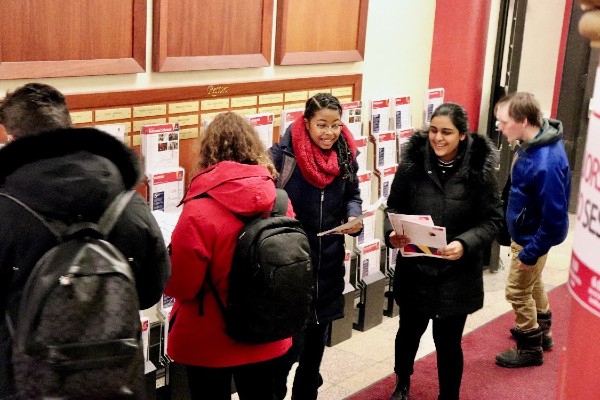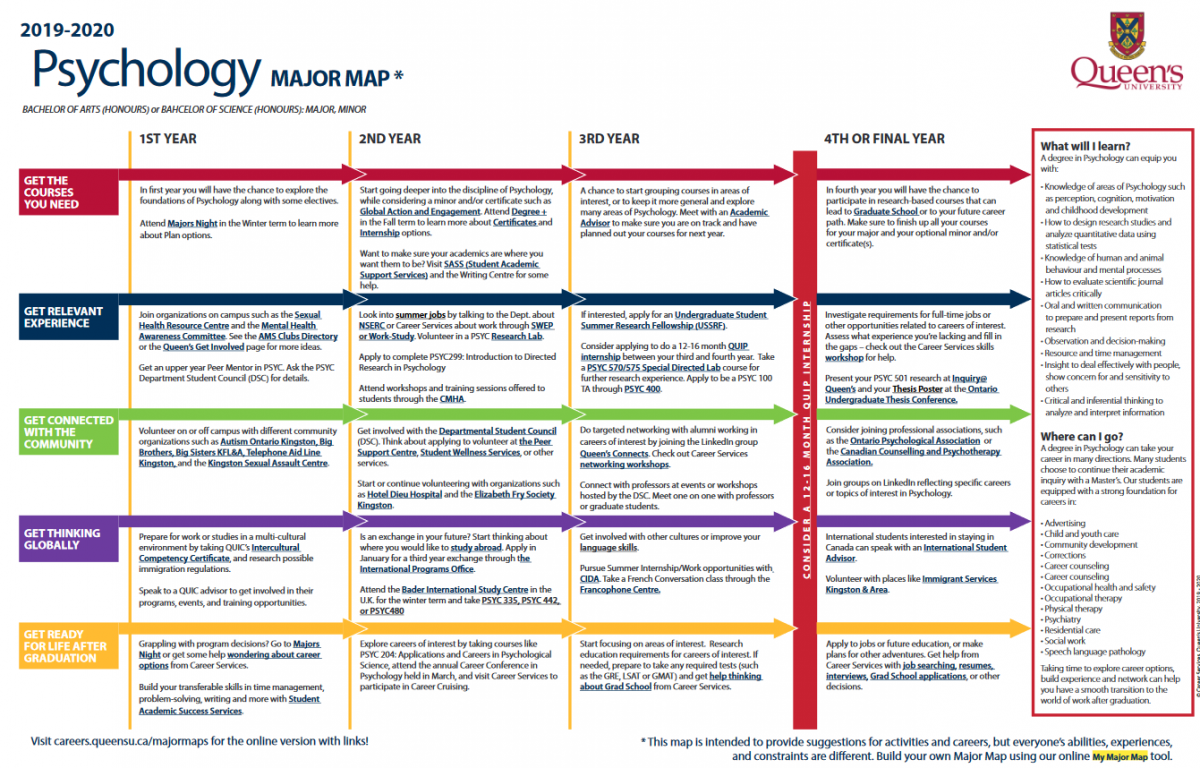Helping students map out their futures
February 4, 2020
Share

In 2015, Queen’s launched the Major Maps, the first of their kind in Canada. Led by the Career Services team in Student Affairs, the maps were developed in collaboration with faculties and departments, students, and staff from across the university.
With the success of the Major Maps for undergraduate students, including receiving the Canadian Association of Career Educators and Employers (CACEE) Innovation in Student Engagement Award, the Career Services team worked with the School of Graduate Studies in 2016 to launch Grad Maps for masters and doctoral students. Since launching, the online maps have been viewed more than 260,000 times, and more than 30,000 print copies are in the hands of students.
In addition to their popularity at Queen’s, the Major Maps have been recognized across the sector as an innovative resource that has made a real impact in helping students with program choice and career planning.
“In over a decade of research and writing about student success strategies, no other practice has been as popular with the audiences we work with — provosts, deans, advisors, faculty, even boards,” says Colin Koproske, Managing Director of Resource Development at the Education Advisory Board. “When we show the maps to other administrators, you can see their eyes light up. Working with the major map team at Queen’s University has helped us introduce the tactic to countless institutions, many of whom have developed or are developing maps on their own campuses.”
Each map lays out a timeline with program information, career options, and job skills tied to each degree program. The maps help students navigate the opportunities available at Queen’s by providing advice on academics, extracurricular activities, networking, international opportunities, and career development. Students, advisors, professors, prospective students and their parents have all found the maps to be an indispensable tool for program and career planning.
“With Major Maps, we wanted to create a resource that really helped students to make the most of their time at Queen’s and prepare for life after graduation,” says Cathy Keates, Director of Career Services and Experiential Learning. “We are pleased with the positive impact the maps have had over the years on students’ learning experience.”

Queen’s Executive Director, Undergraduate Admission and Recruitment, Chris Coupland says “guidance counselors, prospective students and parents routinely remark how valuable the maps are in understanding potential programs beyond the classroom experience. They are a great resource and speaks to the full breadth of the Queen’s student experience.”
In the five years since launch, this innovative approach to supporting students’ career planning has proven its widespread popularity and impact. The Major Maps and Grad Maps continue to be updated annually, and new maps are created as new programs are approved.